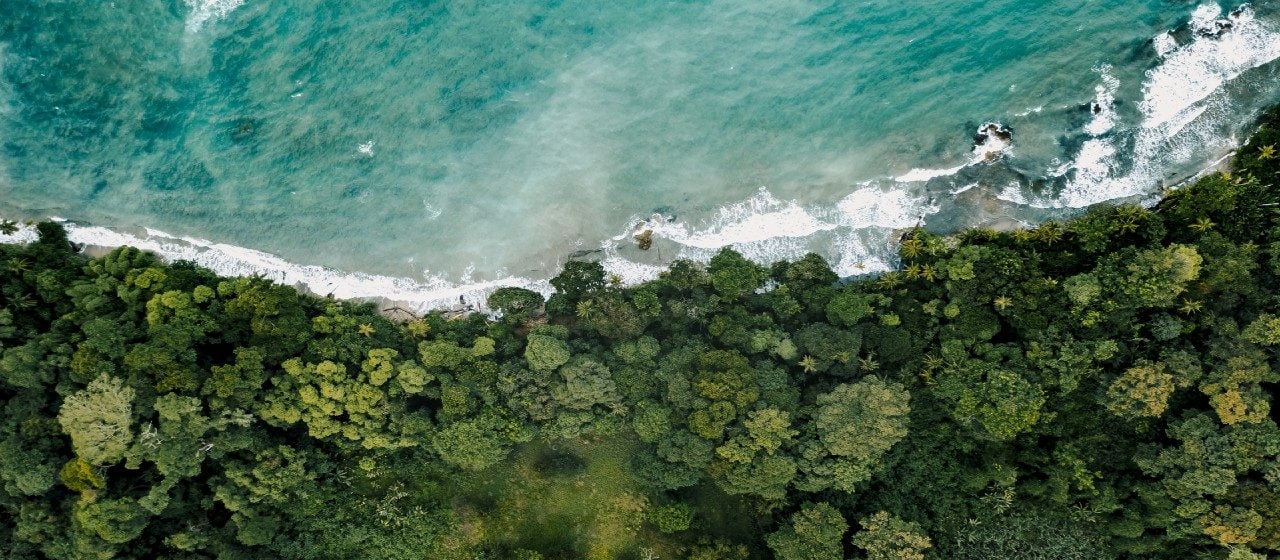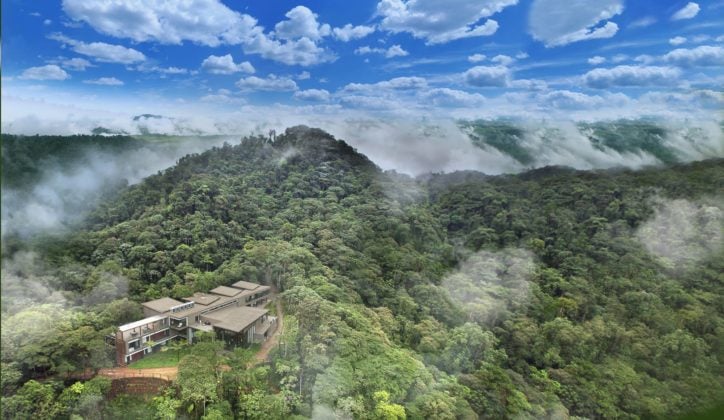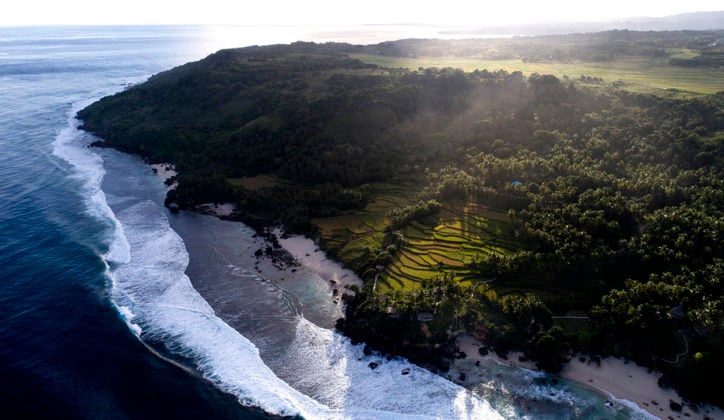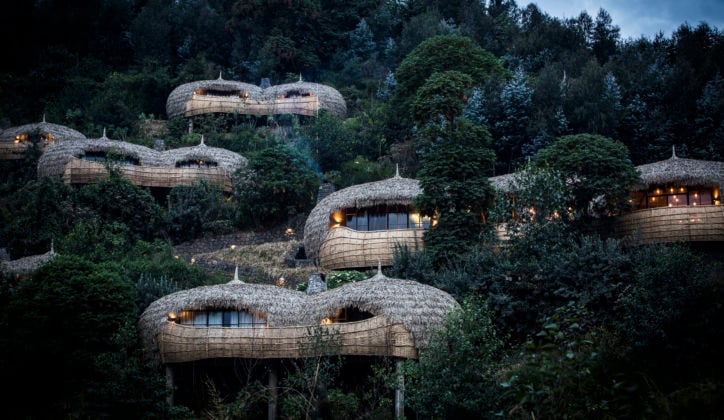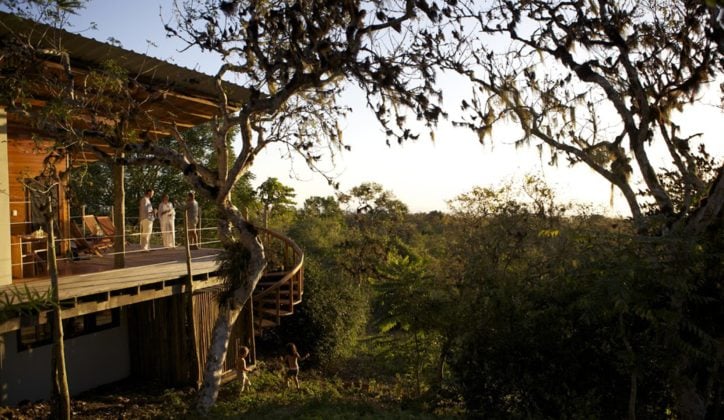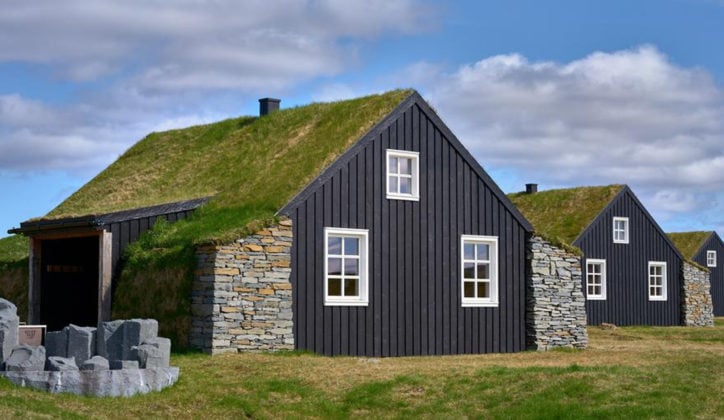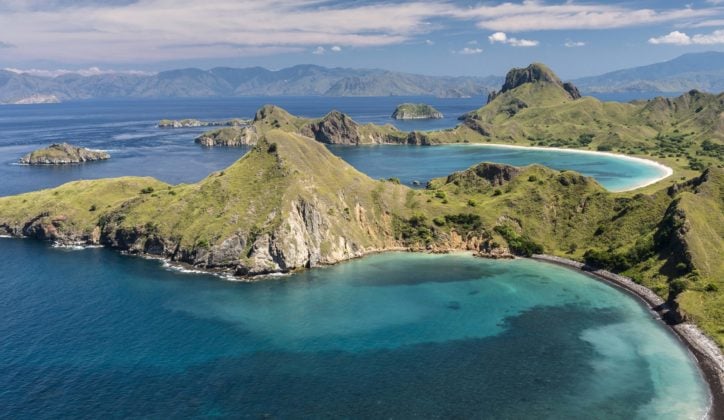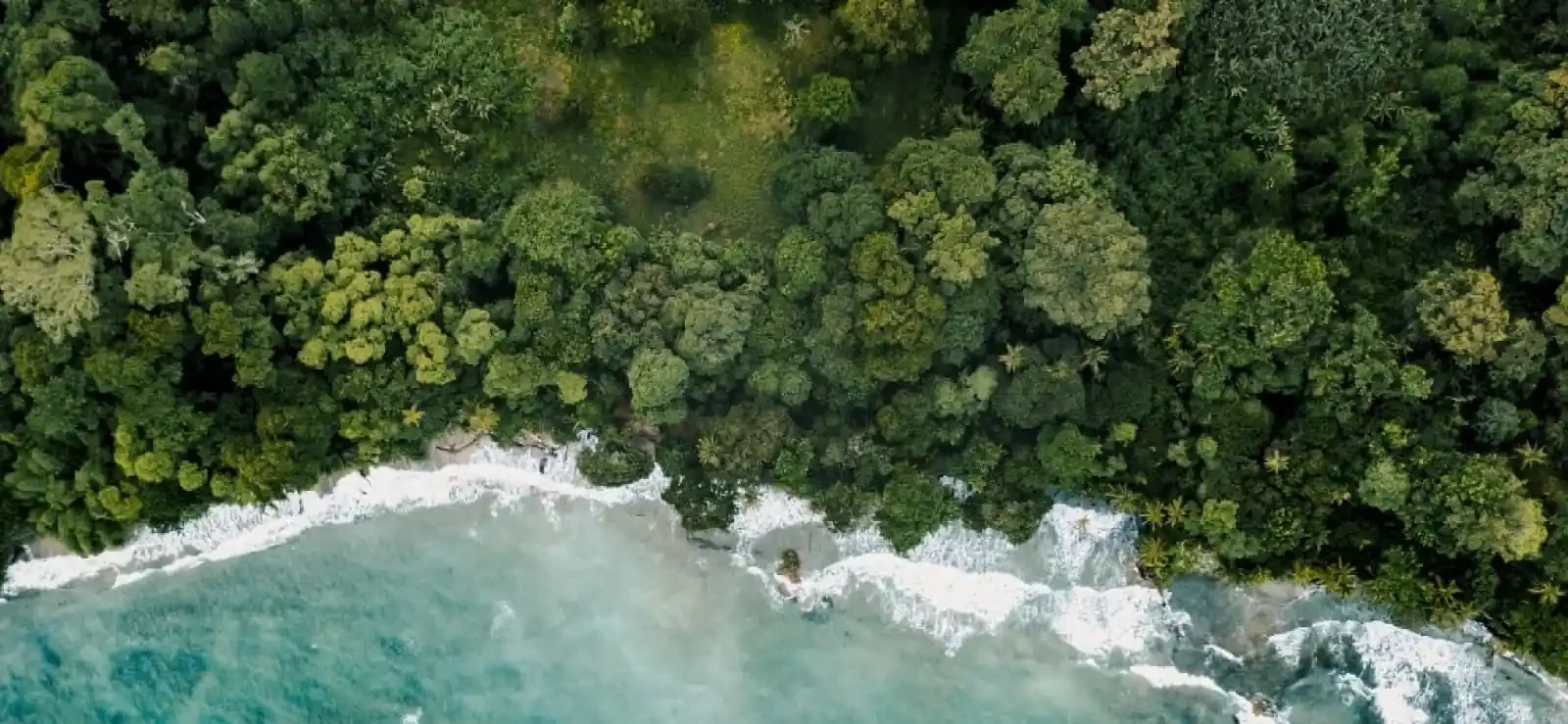Published on: December 1st, 2022
Last updated: December 28th, 2023
Responsible travel is becoming increasingly vital if we’re to protect our world for future generations. With careful planning and choosing the best sustainable destinations, activities and hotels, travel in 2023 is starting to look decidedly environmentally friendly.
Decades of ‘fast tourism’ has damaged our fragile planet, often through over consumption of resources and increased pollution. Tourism is responsible for roughly 8% of the world's carbon emissions [Sustainabletravel.org] and cruise ships alone generate 1 billion gallons of raw sewage a year according to The Environmental Protection Agency, much of it ending up in our seas and oceans.
Places that restrict tourist numbers, promote conservation and uplift local communities are the best destinations for sustainable travel. Countries practising the effective ‘less is more model’ are Botswana with its massive private concessions, the Galapagos Islands where yacht itineraries are limited and Bhutanwhere guests must pay a daily visa fee.
We’ve asked our travel designers to collate their best sustainable travel destinations for 2023.
1. Costa Rica
Costa Rica has long been the jewel in the sustainable tourism crown of Latin America. A huge commitment to going green has resulted in renewable energy sources powering nearly the entire country.
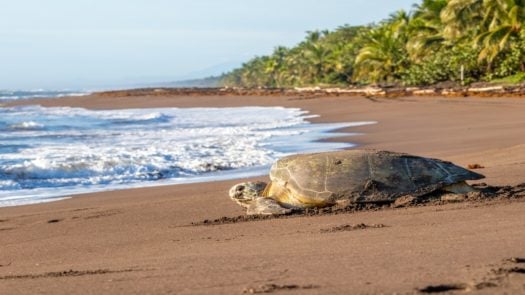
Nayara tented camp, in the volcanic region of Arenal, left space for wildlife and wilderness during construction. An epic reforestation program has expanded the tropical rainforest providing safe habitats for sloths, monkeys and butterflies. There’s also an emphasis on supporting the local community with social initiatives and employment within the property.
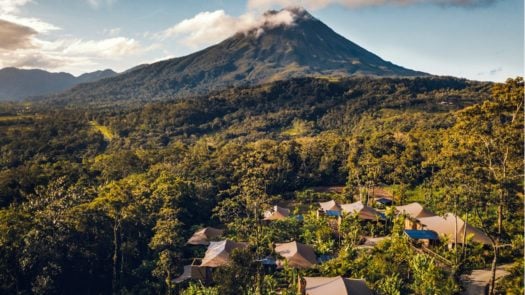
2. Borneo
Much of Borneo is a natural haven, home to orangutans, proboscis monkeys, sun bears, clouded leopards and hundreds of other fascinating creatures. Such incredible biodiversity needs protection and there’s no better example than the massie 43,800 hectare Danum Valley conservation area.

The area’s only property, the Borneo Rainforest Lodge offers a number of low-impact, sustainable activities including an impressive canopy walkway 27 metres above the forest floor. Birdwatching, jungle treks, swimming in the Tembeling waterfall and exciting tubing down the Danum river offer a glimpse into this pristine wilderness.
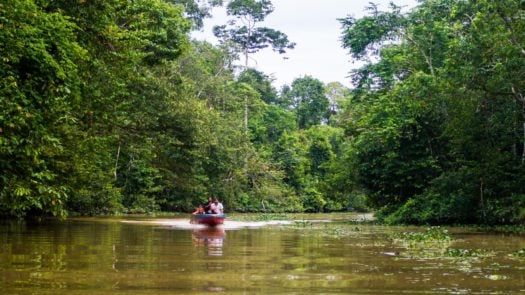
3. Ecuador and the Galapagos
Home to a staggering 6.1% of all the species on the planet, Ecuador and the Galapagos Islands make up one of the megadiverse places on earth. Local authorities, with the enforcement of strict entry regulations and the construction of the world’s first sustainable airport, are already committed to protecting the natural environment.
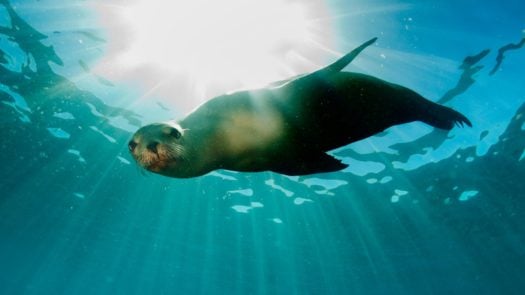
Across the Amazon, Cloud Forests and Galapagos Archipelago award-winning sustainable hotels and cruises use green operations and lead conservation programs. Socio-economic upliftment is also vital in the quest for sustainability. At Napo Wildlife centre, through employment and various other practices, they support a 500 year old Amazon community, preserving traditional ways of life.
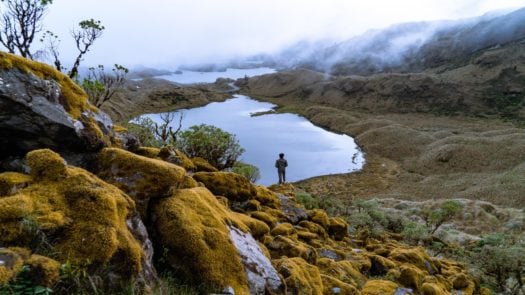
4. Peru
A country rich in natural resources and with strict government policies regarding sustainable development, Peru’s future looks green. An incredibly popular tourist destination with Machu Picchu featuring on travellers’ bucket-lists for decades. The ancient ruins themselves, noticeably ‘over-visited’ are now protected with restricted visitor numbers, compulsory guiding and time-slots to adhere to.
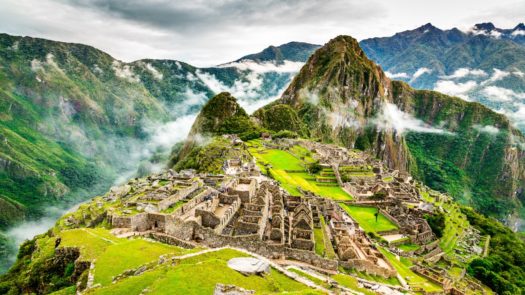
Deeper into the Sacred Valley, 400 metres above the ground, hanging from a cliff, is an unusual, sustainable hotel. The Sky Lodge floats above the ground, the clear walls immersing guests in the natural world. Powered completely by solar energy and featuring a dry ecological bathroom suite and zero single-use plastic usage. The only way to reach the hotel is by low impact transfers on foot or exciting zip lines.
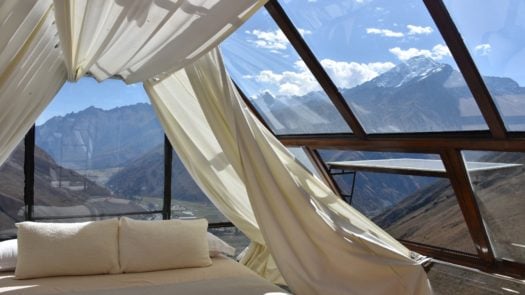
5. Rwanda
Rwanda’s responsible wildlife activity, particularly surrounding critically endangered mountain gorillas and white rhino, puts it firmly on the list of sustainable places to visit. Practising the ‘less is more’ model means fewer guests lessen the impact on the environment.
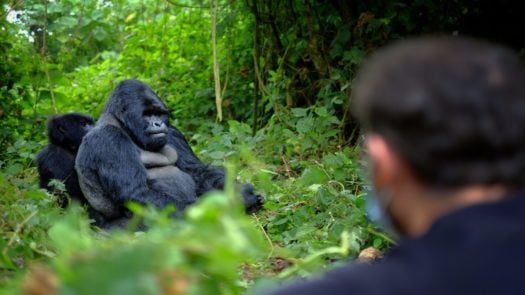
Wilderness Bisate Lodge, close to Volcanoes National Park, excels in great ape research and protection. In addition, a pioneering reforestation programme saw Bisate plant a record number of over 70,000 indigenous trees, ensuring a more sustainable future for the local area.
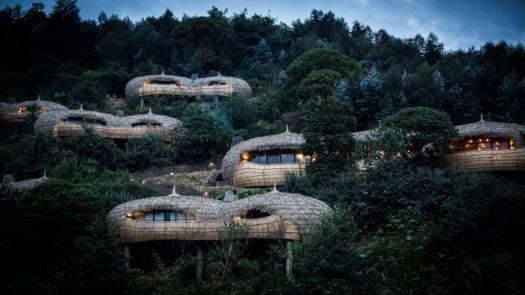
In the Linyanti, Wilderness DumaTau protects one of the world’s largest elephant herds by maintaining ancient wildlife corridors. In the Okavango Delta uplifting local communities and conservation goes hand in hand at Wilderness Vumbura Plains camp. Education, skill sharing and upliftment programs uplift local people and the wildlife sanctuaries they live in.
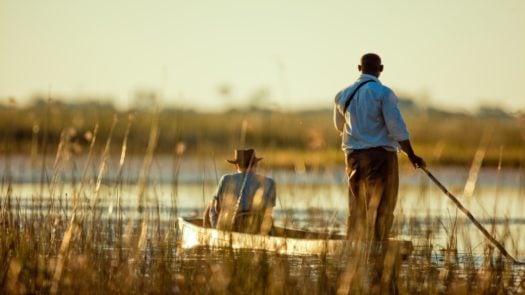
7. Bhutan
Bhutan, the last Buddhist kingdom on earth. A tiny, carbon-negative nation that practises sensitive tourism, restricts visitor numbers and charges a daily visa fee. A ‘less is more’ approach mutually benefits guests and the Bhutanese – forging meaningful connections.
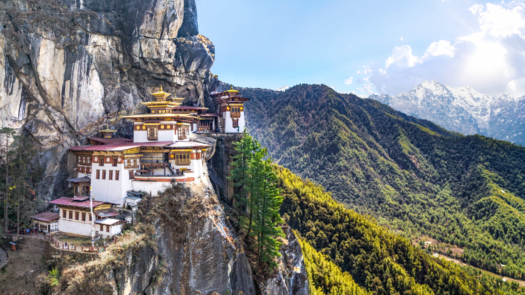
Conservation, growth and protection of national parks are high up on the constitutional agenda. Jigme Singye Wangchuck National Park in the Gangteng Valley offers visitors the chance to learn about Black-necked Crane conservation. Six Senses, one of the world’s leading sustainable hotel chains, commits to preserving and protecting Bhutan’s unique environment.

8. Nepal
Nepal is blessed with an intense natural beauty from the peaks of the Himalayas and Annapurna to the glistening lakes of Pokhara. The government protects 24% of the country with national parks, reserves and buffer zones (where people live within national parks) and there’s an emphasis on mutually beneficial, nature-based tourism.
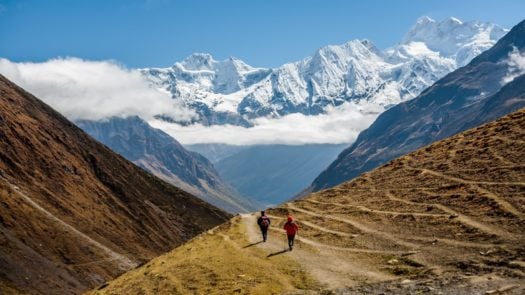
Tiger Mountain Pokhara Lodge have proudly evolved beyond standard ‘eco-tourism’ and now focus on regenerative tourism initiatives, specific to the middle hills of Nepal. They offer authentic experiences through which guests, employees, locals and the environment can thrive.
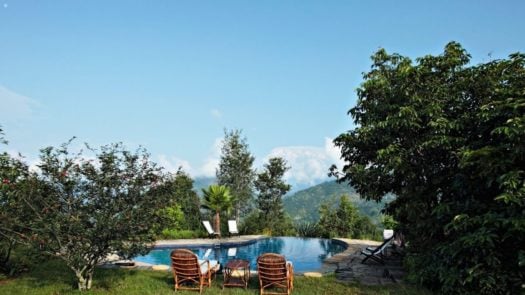
9. New Zealand
New Zealand is serious about its sustainable tourism; the aim is to significantly reduce the tourist carbon footprint and to be net zero before 2050. Maori culture has spearheaded government policies that protect the environment such as giving natural wonders the same rights as humans in a court of law.

On the shores of Lake Pukaki, off the grid, self-sufficient living and low impact excursions such as biking and stargazing, can be found at Lakestone Lodge. The lodge relies totally on solar power, rain and bore water and has a sewage treatment facility too.
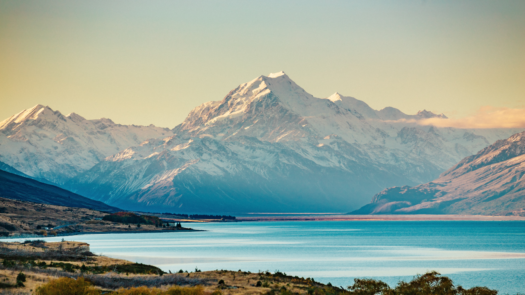
10. Iceland
Epically beautiful, this icey island’s main attraction is the land itself. Rich in thermal energy and other renewable sources, Iceland is at the forefront of sustainable energy production. In fact, 85% of its power is made by renewable energy.
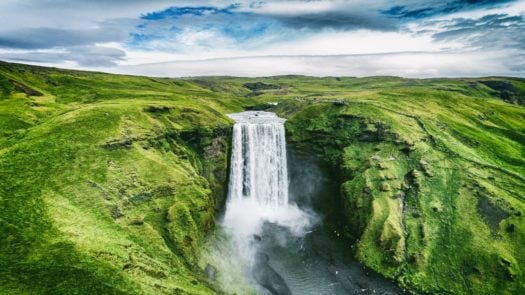
Ice caving, puffin watching, viewing the northern lights, glacier hikes and soaking in the blue lagoon are among a host of low impact activities that immerse visitors in this natural paradise. Sustainable design and green operations are showcased at both The Retreat at the Blue Lagoon with its harnessing of geothermal power and at Torfhús Retreat with its turf rooftops and fleet of electric vehicles.
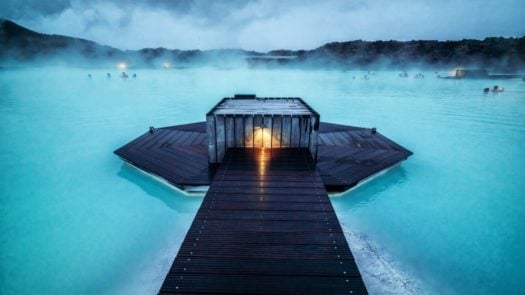
11. Finland
According to a 2022 report from the United Nations, Finland is the most sustainable country in the world. Impressively the city of Lahti won the European Green Capital award in 2021 thanks to its energy-efficient homes, UNESCO-certified groundwater systems and its recycling programs.
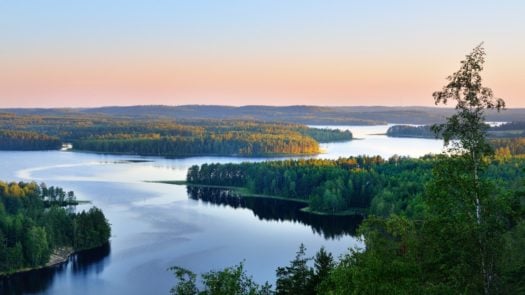
Nationwide, 40 national parks protect this staggeringly beautiful environment. Across Finnish Lapland there’s a host of activities suited to sustainable travel. There’s reindeer sleighs, husky safaris, cross country skiing, snowshoeing and even survival courses. Travel to the remote Wilderness Hotel Muotka where no light pollution can result in epic aurora displays.

12. Switzerland
Known for its immaculate cities and clean living, Switzerland is an extremely environmentally-friendly country with nearly 60 percent of its electricity coming from hydropower. It also boasts excellent waste management with around 50% of rubbish being recycled.
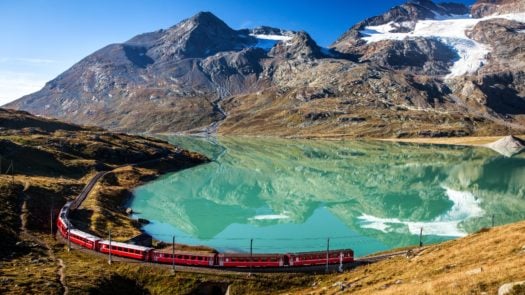
Sustainability and luxury work together in the picture-perfect Alpine region of Gstaad at the Alpina hotel, particularly celebrated within their kitchens. The executive chef has introduced a zero waste philosophy, creating sustainable dishes such as zero waste pasta and pizza made from left-over rye bread to create casarecce pasta and dough.
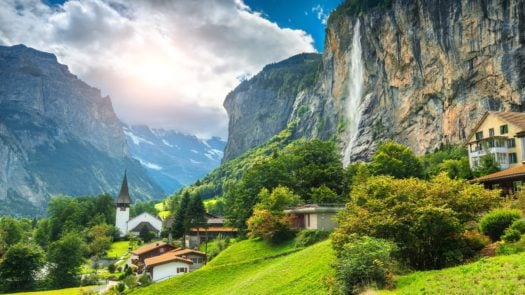
Jacada's favourite sustainable hotels and lodges
Our Team's Favourite Sustainable Trips
Talk to one of our experts today and start creating your luxury sustainable trip.
